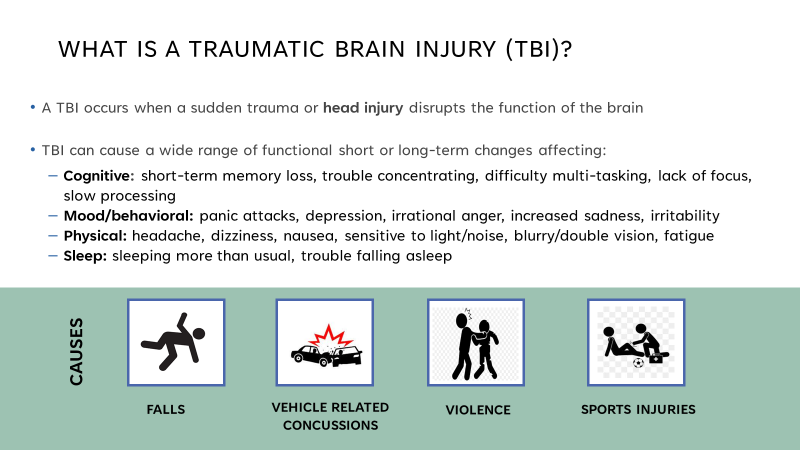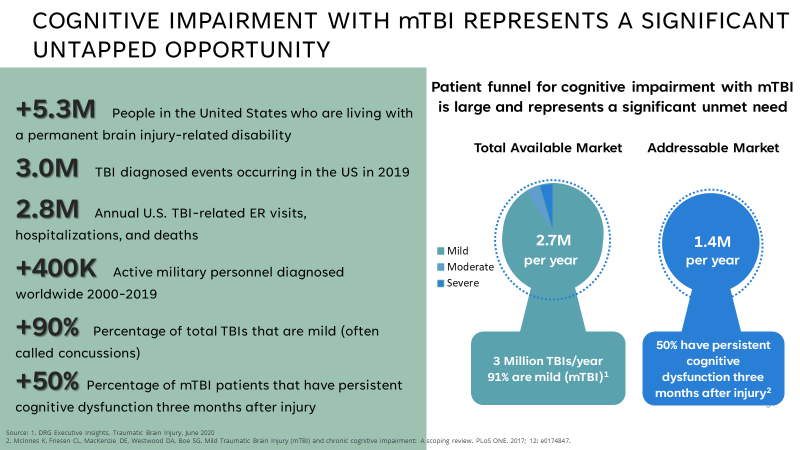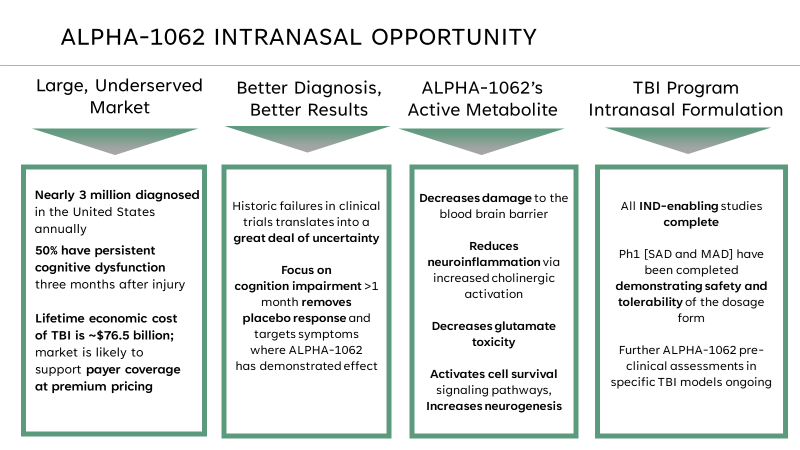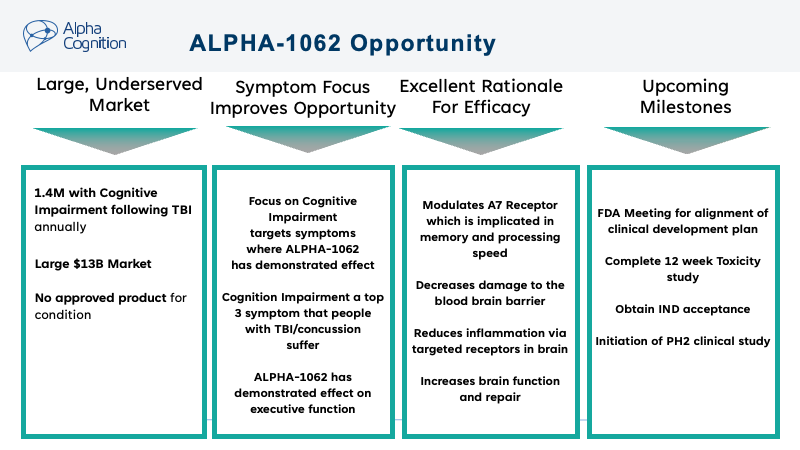Cognitive impairments are a common consequence of TBI. Disruptions in acetylcholine neurotransmission after TBI contribute to many of the cognitive impairments reported and numerous studies show injury-related reduction in ACh turnover and release, and decreased expression of nicotinic ACh receptors. In addition, the hippocampus, a region in the brain that plays a key role in the formation of memories is highly vulnerable to TBI. The alpha-7 nicotinic acetylcholine receptor is highly active in this region and reduced function of the receptor is linked with cognitive impairment. Together, these observations have led to the study of AChEIs in the treatment of TBI. Galantamine, unlike other AChEIs, has been shown to improve function in the hippocampus, improve cognition, learning and memory in animal models of concussion. It is believed the dual mechanism of action of galantamine, acetylcholine esterase inhibition and enhancement of alpha-7 nicotinic receptor function, contributes to its therapeutic effect.
ALPHA-1062 intranasal delivery for treatment of Cognitive Impairment with mTBI
ALPHA-1062 is being developed for the acute treatment of TBI. The intranasal route of delivery has unique benefits compared to oral administration that may result in greater effectiveness. Animal models studying the pharmacokinetics of intranasal ALPHA-1062 show a 10-fold increase in concentration of galantamine in the brain compared to oral administration of galantamine.
ALPHA-1062 has been studied in single and multiple dose studies in humans and has shown significantly reduced GI side-effects when compared to similar doses of galantamine. Phase 2 studies of ALPHA-1062 in patients with TBI are planned to be initiated in Q12025.








